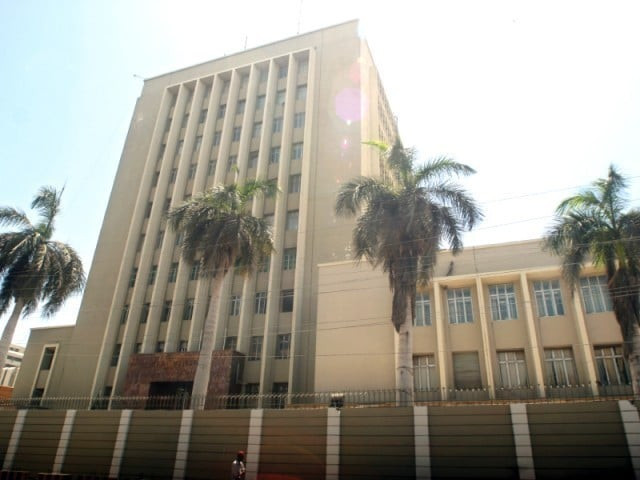Post-withholding tax: People reduced using cheques to avoid levy
Rs11.8t passed through SBP Clearing House in July-December compared to Rs13.5t in January-June 2015

Rs11.8t passed through SBP Clearing House in July-December compared to Rs13.5t in January-June 2015. PHOTO: ATHAR KHAN/EXPRESS
Traders raised a ruckus soon after Finance Minister Ishaq Dar introduced a withholding tax on banking transactions and cash withdrawals as part of the federal budget for 2015-16.
People would withdraw their deposits in droves before the levy became effective on July 1, they warned. It would force people to switch to non-banking channels for making payments, they claimed.
In contrast, most commentators at the time termed such fears ‘overblown’. There are few viable alternatives of a formal bank account for an average businessman or middle-class saver, they said. Avoiding banking transactions just to get away from the levy was impossible, they stated repeatedly.
‘Restructuring tax regime central to realising potential’
Aimed at encouraging people to file their tax returns, the withholding tax on cash withdrawals and banking transactions of Rs50,000 or more by a non-filer in a day was imposed initially at 0.6%. It was later reduced to 0.3% and will soon be increased to 0.4%.

Although the government collected Rs13.2 billion through the withholding tax on banking transactions/cash withdrawals in the first seven months of 2015-16, it is not yet clear if the levy actually hurt the banking system.
What actually transpired
Did deposits decrease ahead of the imposition of the levy? Did people reduce the number of their banking transactions of more than Rs50,000 in a day to avoid paying the levy?
Pakistan's current tax regime favours elite, says tax reforms report
On a year-on-year basis, deposits maintained by private-sector businesses in the banking system increased 3.6% during 2015. But a closer look at banking data reveals the year-on-year increase in the deposits held by private-sector businesses materialised exclusively in the first six months of the year.
After increasing by 7% from the beginning of the year, deposits held by private-sector businesses clocked up at Rs2.5 trillion at the end of June 2015. But the trend reversed in the second half of the year with the imposition of the levy on banking transactions from July 1. Deposits held by private-sector businesses at the end of 2015 amounted to Rs2.4 trillion, down 3.1% from June 30 when the withholding tax kicked in.
This was the first time since 2011 that the deposits held by private-sector businesses declined in the latter half of a calendar year, central bank’s data shows.
As for the impact of the withholding tax on the volume of banking transactions, data released by the State Bank of Pakistan (SBP) shows a similar trend. Official statistics show the public actually reduced its use of cheques and pay orders post-July 1 presumably to avoid the levy on banking transactions of more than Rs50,000 in a day.
Pakistan’s corporate tax rate third highest in world
The Statistical Bulletin released every month by the SBP carries a section called ‘Clearing House Statistics’. It gives a breakdown of the amount of money – and the number of cheques – that 16 of its country-wide clearing houses process every month.
Clearing houses tally up all cheques and bills received from banks every day and come up with net balances that need to be paid in cash. In other words, SBP’s clearing data incorporates every single cheque written and deposited into the banking system across Pakistan. According to the latest data, there was a substantial decline in the number of cheques presented for clearing in the second half of 2015 compared to the preceding six months.
In the first six months of 2015 when there was no withholding tax on banking transactions, SBP’s clearing houses processed as many as 36.3 million cheques. However, the number of cheques processed equalled 29 million in the latter half of the year when the levy on transactions was effective. This translates into a decline of over one-fifth (20.1%) in the number of cheques processed nationwide over the six-month period.
Pakistan’s revenue collection surpasses target
Similarly, the drop in the amount of money passing through SBP’s clearing houses in July-Dec 2015 was Rs11.8 trillion, down 12.5% from Rs13.5 trillion for the first six months of 2015.
“Deposits growth remained stunted last year. Based on our interaction with the management of multiple banks, we can safely say the levy affected the banking sector adversely in the latter half of 2015,” said Umair Naseer, banking sector analyst at Topline Securities.
THE WRITER IS A STAFF CORRESPONDENT
Published in The Express Tribune, March 7th, 2016.
Like Business on Facebook, follow @TribuneBiz on Twitter to stay informed and join in the conversation.


















COMMENTS
Comments are moderated and generally will be posted if they are on-topic and not abusive.
For more information, please see our Comments FAQ